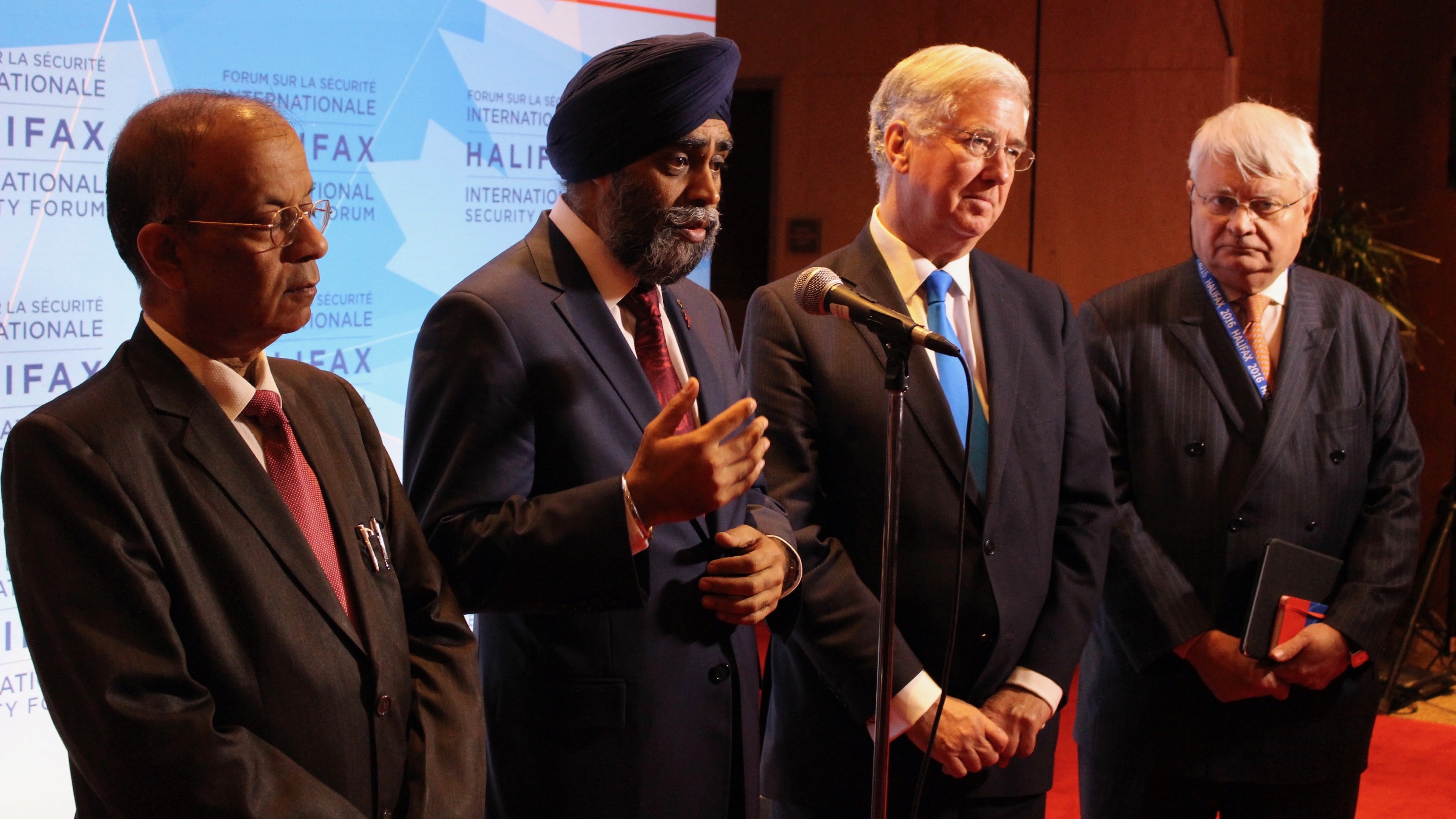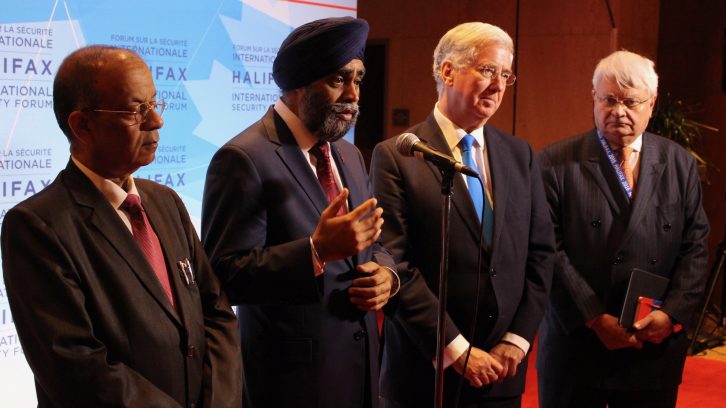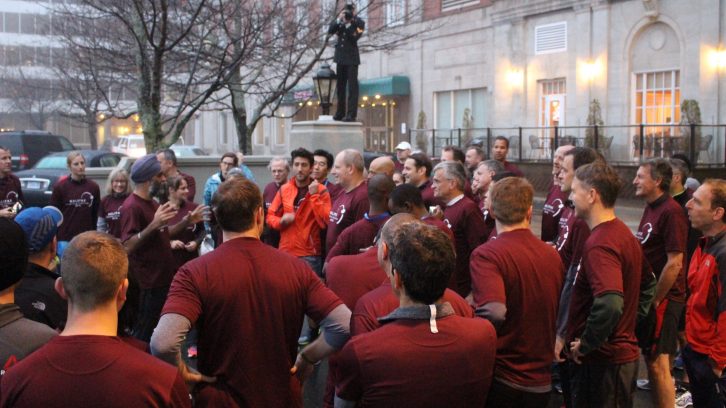Security
Halifax International Security Forum tries to answer questions about Trump
New U.S. administration was a hot topic during three-day conference

caption
UN Under-Secretary-General for Field Support Atul Khare, Canadian Defence Minister Harjit Sajjan, U.K. Secretary of State Sir Michael Fallon and UN Under-Secretary-General for Peacekeeping Hervé Ladsous address the media after a meeting on UN peace operations Friday morning.
caption
UN Under-Secretary-General for Field Support Atul Khare, Canadian Defence Minister Harjit Sajjan, U.K. Secretary of State Sir Michael Fallon and UN Under-Secretary-General for Peacekeeping Hervé Ladsous address the media Friday morning.The Halifax International Security Forum (HISF) concluded Sunday at the Westin Nova Scotian, after a weekend of discussion largely dominated by the pending Donald Trump administration in the United States.
Peter Van Praagh, president of the forum, said at Sunday’s closing news conference that this year had record attendance, proving why it was a “must-attend event for democratic nations around the world.”
U.S. Senator Tim Kaine was honoured Friday night with the Builder Award, given to those who have been “instrumental to the success” of the conference. Related stories
The enduring question of the weekend was whether the U.S., under Trump, would change its stance on international security and foreign affairs in the coming years.
Donald Trump won the U.S. presidential election on Nov. 8 and has proposed some nationally and internationally controversial policies on the campaign trail. It remains to be seen if he will implement those policies once he is inaugurated on Jan. 20.
Reporters were not allowed into the sessions, but live streams were made available on the HISF Facebook page.
“The United States’ enduring interests remain the same,” said Rosa Brooks, a law professor at the Georgetown University Law Center on Saturday. “Whether we have a president in the White House that pursues that interest … that we just don’t know yet.”
The conference, hosted by Canadian Defence Minister Harjit Sajjan, covered topics like China’s changing role in the global world order, cybersecurity and the state of democracy and nationalism.

caption
Before Sunday morning’s discussions began, the conference participants went for a 5k run with Defence Minister Harjit Sajjan.A Saturday panel devoted to climate change agreed that the phenomenon has the potential to become an environmental and economic security threat. The six panelists also agreed a “new energy economy” should be seen as an opportunity.
U.S. Senator Chris Coons again tied the climate change debate back to Donald Trump and expressed concern.
“I’m not hopeful that our contributions will meet our Paris goals, if the Trump administration maintains the course it set in the election,” Coons said on Saturday.
U.S. Senator John McCain participated in a panel about the United States government and how the checks and balances will work with President-elect Trump. McCain and U.S. Senator John Barrasso both emphasized that Democrats and Republicans have to work together to govern effectively, especially now.
“The world’s on fire; we have domestic issues of enormous proportions … we have to work together and we have to work with whoever the American people select,” McCain said. “Is it up to us to override the verdict of American people? I don’t think so.”
On the topic of waterboarding, McCain said he didn’t “give a damn what the president wants to do.” He claimed the practice was unequivocally unacceptable and would quickly be challenged in court, were it to occur under the new Trump regime.
In discussing Syria and Aleppo specifically, participants agreed that more needed to be done to address causes of conflict and “the growing global network of terrorism.”


T
Tessa R Bryant
E
Ellie
M
Molly